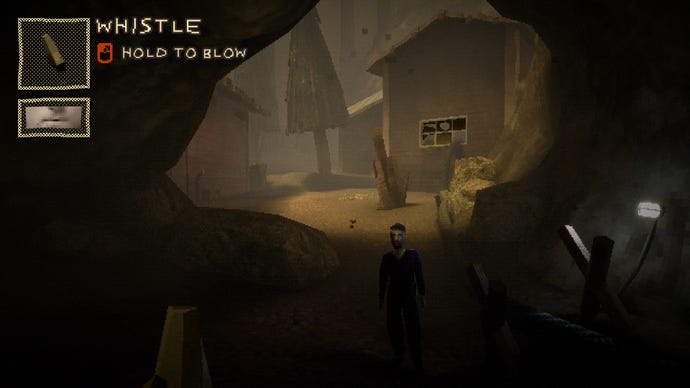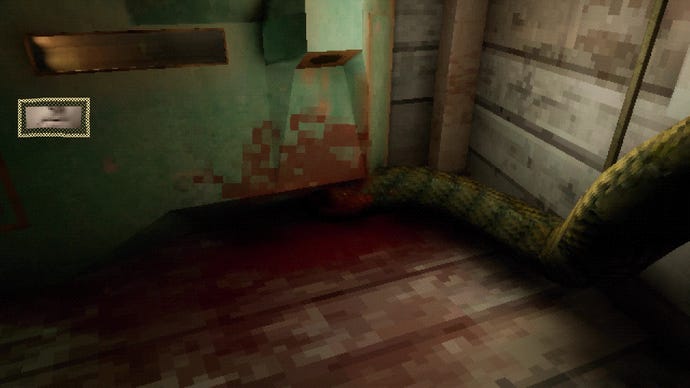My time in Threshold was filled with pain. Five times. I had to restart this psychological horror game five times due to a game-breaking bug. Yet I didn’t give up, restarted it and returned to my government-mandated shift atop a silent mountain.
Ultimately, I gave Threshold chance after chance because I was completely absorbed in my change and my intense desire to find out What I actually did. Either way, it’s time to wrap up! I insist that you take over until I return. It’s worth it.
In the same spirit as my Mouthwash review, I will preface this with a elementary message, which I will now deliver to you via an imaginary printer built into a gray, dingy wall. A piece of paper with the words “zzt, zzt, zzt” slides out. A speaker in one corner of the room comes to life and surprises you. He says, “I will refrain from talking about this story because it would ruin it for you. Sign the contract first and you will be able to read further.”
Threshold’s story is told from a first-person perspective and begins in a tiny locker room. A mysterious sound from the speaker tells you to collect your documents and get to work. Mo’s shift is over and you are to take over from him. So you step into the elevator and it goes up with a rather memorable clang. Everything you know for now: 1) you can look around and click on highlighted objects, 2) you can switch between items using the mouse wheel. The ominous oxygen meter protruding from the floor sinks lower and lower as the elevator spins upwards.
Eventually you land on the top of the mountain and Mo says hello. But he doesn’t speak, instead hurriedly writing down words on pieces of paper and passing them out one by one. Oxygen levels are low, he says, so conserving each breath is crucial to working efficiently. Then he introduces you to the border post and your work there…
A vast freight train passes by with a row of lights above it. Your task is to keep the train at the “expected pace”, which is very essential because the smoothness of the water level in the nearby stream depends on it. If the train drops below the expected pace, a siren will sound and lights will indicate the pace to be achieved. He hands you a whistle made of ivory that is strangely frigid to the touch. You are to stand by a tiny loudspeaker in front of the train and blow this whistle, which will command the train to accelerate with an ominous “thhhnnnggg” as the rear flap of the loudspeaker lifts and snaps back into place.
The thing is, you just let out a lot of air and you’re one step away from death – oh. Mo remains peaceful and hands you a tube-shaped air pod. You have to bite it to inhale some sweet, sweet O2. What he doesn’t tell you is that the tube is made of brittle glass and will shatter in your mouth, causing the blood to fall to the ground below. “We got used to it,” he says.

He then shows where you can get tickets and how to exchange them in a tiny office. Put your tickets into the machine and it will spit out air capsules, but Just when the train is traveling at the expected speed. He then leaves you to keep the train running, confident in your abilities. He doesn’t mention building two, which you passed by, which is clearly closed. He makes no mention of the suspicious mound of dirt next to the ticket machine. Or blood stains behind a vast box. It doesn’t mention what it is IN train.
From this point on, Threshold is a semi-linear story in the sense that as you explore, you discover various things (horror stories) about the tiny border post. Depending on what you discover and how you interact with these things, you will meet certain conditions that mean you will trigger the next piece of the story, and so on. I only discovered one ending and I was told it was true and evil.
Again, I must exercise restraint, but the universe of the tiny border outpost of Threshold seems strangely believable to me. It’s hilarious how you take over from Mo without asking and look after the train, blowing the whistle as your lungs feel close to collapsing. And it’s fascinating, the way you get caught up in the rhythm of your job and the balance you have to strike between rushing and controlling your oxygen levels – I can’t describe how absorbed I was in my stupid, stressful little job.
However, if you do your job poorly, you will run out of air, and if that happens: you will die. Tilt and you’ll have to start your shift from scratch, but if you secure a infrequent checkpoint you can start from about halfway through the game. Although if you reload the game from a checkpoint, it can be tough to tell exactly where you are in terms of what conditions you met earlier and what you need to do next.

Still, the oxygen grind isn’t the typical nonsense of survival games, so it’s rarely frustrating. And the monotony of your routine doesn’t get dull in the sense that as you discover objects and how they can interact with each other, your routine can “change”, both in terms of the story and the things you do – wise. These changes were more than captivating enough to facilitate me get through at least five restarted playthroughs. I was desperate to find out how things turned out (I’m sure they fixed the bugs that were bothering me after release).
As the horrors unfold and you learn more about the post, Threshold’s comment becomes clearer. It’s about willful ignorance, excess and preservation at all costs. And how someone else’s job can seem incredibly essential, even when you know something is up and your place in it is up for grabs. I think that of all the horror games I have played, this one will remain in my memory as tiny, to the point and incredibly addictive. So yes, if you want to take over my shift, I insist you do so. Actually, I’ll leave now. Call me if you need anything and keep up!

